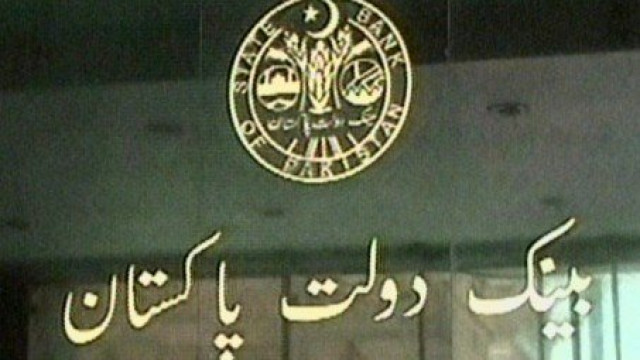SBP challenges FSC Riba verdict in SC
Argues terms of arrangements with world finances are not dictated by any law in force in Pakistan

The State Bank of Pakistan (SBP) has approached the Supreme Court, seeking modification of the Federal Shariat Court (FSC) April 28 judgment that declared that Riba was prohibited according to the injunctions of Islam and so it should be eliminated from the country in five years.
The SBP has filed the appeal under Article 203D of the Constitution. The appeal read that there were certain discrepancies in the FSC judgment; therefore, the SBP sought clarifications accordingly.
It was submitted to the top court that the gradual approach for the transformation of the banking system into a Shariah-compliant one was adopted at the start of this millennium. Both the Islamic and conventional banks were allowed to operate simultaneously in the country.
"This approach has proved to be a success. The Islamic banks now account for 19.4% of the country's overall banking system in terms of assets while in terms of deposits the share is 20% (as of March 31, 2022). Currently, 22 Islamic banking institutions (lBls) (five full- fledged Islamic banks and 17 conventional banks having standalone Islamic banking branches) with a branch network of 3,983 branches along with 1,418 Islamic banking windows (Islamic banking counters at conventional branches) are operational across the country,” the appeal read.
“The SBP has also been taking measures to bring the legal and regulatory infrastructure in compliance with Shariah principles. It is pertinent to mention that SBP is among the few regulators in the world that have introduced a comprehensive legal, regulatory and Shariah compliant framework for Islamic banking.”
The plea further stated that in paragraph 132 on page 248 and paragraph 158 on page 287 of the judgment dated April 28, the FSC had directed that future financial engagements, including the availing of loans and advances, between Pakistan and international financial institutions and other bilateral as well as multilateral providers of finance be carried out on the basis of Shariah compliant modes of finance such as the issue of Sukuk.
The SBP noted that while Islamic modes of finance were a growing area of interest for foreign providers, the adoption of particular modes of finance with respect to any particular advance was not in the hands of the state of Pakistan and its various instrumentalities.
“Funding arrangements with international providers of finance are a matter of negotiations carried out by the designated officials/authorities of the state of Pakistan. The form and the terms of such arrangements are not dictated by any law in force in Pakistan but are a result of the best outcome that the state can achieve in the arena of international finance.”
The appeal stated that in paragraph 163 of the April 28 judgment, Article 203D(2)(b) of the Constitution allowed the FSC to specify the date on which its decision with respect to a particular law shall take effect.
“The time period of five years specified in paragraph 163 of the judgment dated 28.04.2022 is not relatable to any particular law.”
The SBP argued that even otherwise, a mass scale conversion of the banking system would require infrastructural investment and changes at a mega scale --- at least five times more within the next five years in comparison with the current level which has been achieved in more than 20 years.
“Accordingly, transaction costs, documentation requirements and dearth of risk management solutions will put additional pressure on the conversion process. Abruptness in implementation will create uncertainty in the banking sector, which may bring instability to the whole economy. However, the GoP, SBP and other stakeholders are working towards achieving an interest free economy that adheres to the principles of the Shariah in the country."
It is also contended that a direction is contained in paragraph 161 of the FSC judgment, whereby the federal and provincial governments had been directed to complete the necessary legislative amendments in the laws declared to be repugnant to the injunctions of Islam by 31 December, 2022 so as to bring them in conformity with the injunctions of Islam.
“The federal parliament and the provincial assemblies cannot be subjected to the cut-off date of 31 December, 2022 as regards the capacity to legislate. Furthermore, the holding that laws to be enacted by the federal and provincial legislatures could only have a prospective effect is tantamount to limiting the legislative competence of the federal and provincial legislatures that is ultra vires the Constitution.”
The SBP further argued that Rule 9 of the Banking Companies Rules, 1963 provided for the receipt of interest paid by foreign issuers of approved securities that are held in Pakistan.
“Individuals and businesses engaged in trade and finance internationally often come to hold securities issued outside Pakistan that carry interest. Rule 9(2) provides the mechanism for the receipt of such interest inside Pakistan. Rule 9(2) does not authorise the issuance of any interest-based instrument inside Pakistan.”
The SBP requested the top court that the judgment of the FSC be modified so as to address the issues raised in the appeal.



















COMMENTS
Comments are moderated and generally will be posted if they are on-topic and not abusive.
For more information, please see our Comments FAQ